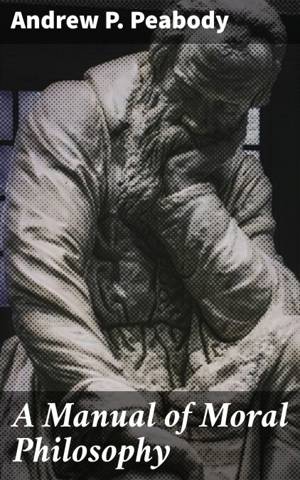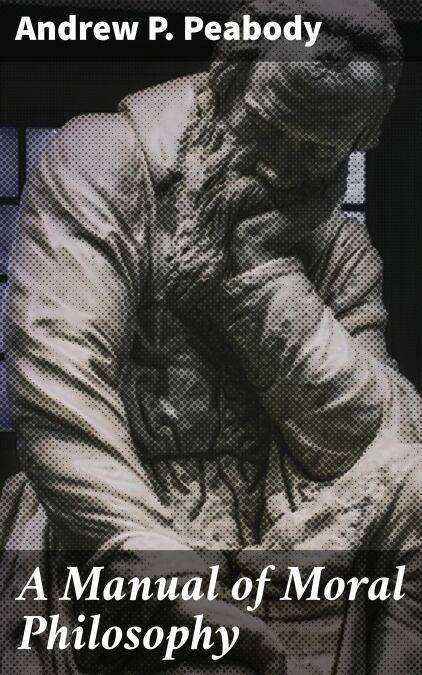
- Afhalen na 1 uur in een winkel met voorraad
- Gratis thuislevering in België vanaf € 30
- Ruim aanbod met 7 miljoen producten
- Afhalen na 1 uur in een winkel met voorraad
- Gratis thuislevering in België vanaf € 30
- Ruim aanbod met 7 miljoen producten
Zoeken
A Manual of Moral Philosophy E-BOOK
Navigating Ethics: A Deep Dive into Moral Principles and Their Applications
Andrew P. Peabody
E-book | Engels
€ 1,99
+ 1 punten
Uitvoering
Omschrijving
Andrew P. Peabody's "A Manual of Moral Philosophy" is a comprehensive examination of ethical theories, providing readers with a deep understanding of moral principles and their applications. Written in a clear and accessible style, the book delves into the complex realm of moral philosophy, offering insightful analyses of key concepts such as virtue ethics, deontology, and utilitarianism. Peabody's work serves as a valuable resource for students and scholars alike, as it navigates the historical and contemporary debates surrounding morality. The book's engaging narrative and thought-provoking discussions make it a must-read for anyone interested in the intersection of ethics and philosophy. Peabody's meticulous research and profound insights elevate this manual above others in the field, making it a seminal work in moral philosophy. Andrew P. Peabody, a distinguished scholar and philosopher, draws upon his extensive expertise to craft a text that is both informative and thought-provoking. As a renowned authority in the field of ethics, Peabody's background and scholarly contributions lend credibility to his exploration of moral philosophy in this book. His thorough examination of ethical systems and moral dilemmas reflects his commitment to facilitating a deeper understanding of ethical issues among readers. I highly recommend "A Manual of Moral Philosophy" to readers seeking a comprehensive and engaging exploration of moral principles. Peabody's nuanced analysis and compelling arguments make this book essential reading for students, academics, and anyone interested in ethical theory and its practical implications.
Specificaties
Betrokkenen
- Auteur(s):
- Uitgeverij:
Inhoud
- Aantal bladzijden:
- 205
- Taal:
- Engels
Eigenschappen
- Productcode (EAN):
- 4064066103767
- Verschijningsdatum:
- 15/03/2020
- Uitvoering:
- E-book
- Beveiligd met:
- Digital watermarking
- Formaat:
- ePub

Alleen bij Standaard Boekhandel
+ 1 punten op je klantenkaart van Standaard Boekhandel
Beoordelingen
We publiceren alleen reviews die voldoen aan de voorwaarden voor reviews. Bekijk onze voorwaarden voor reviews.







